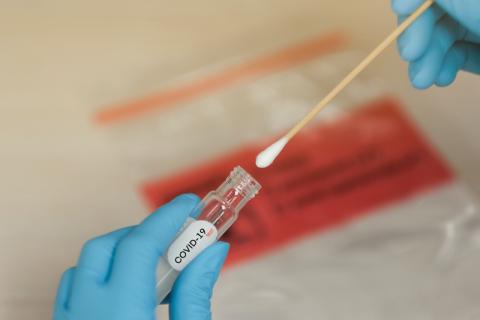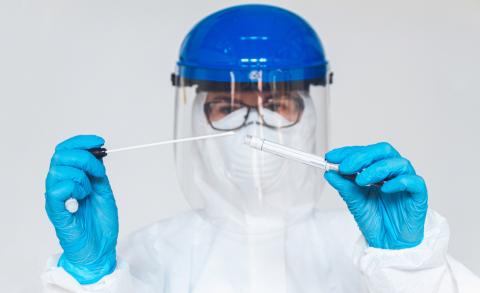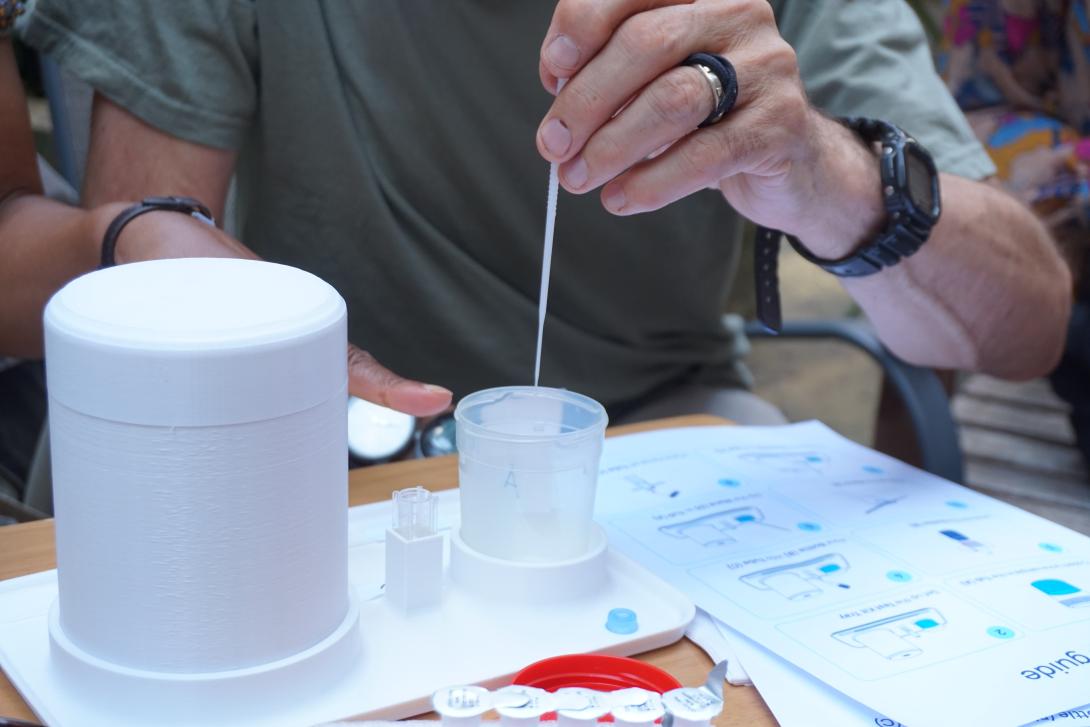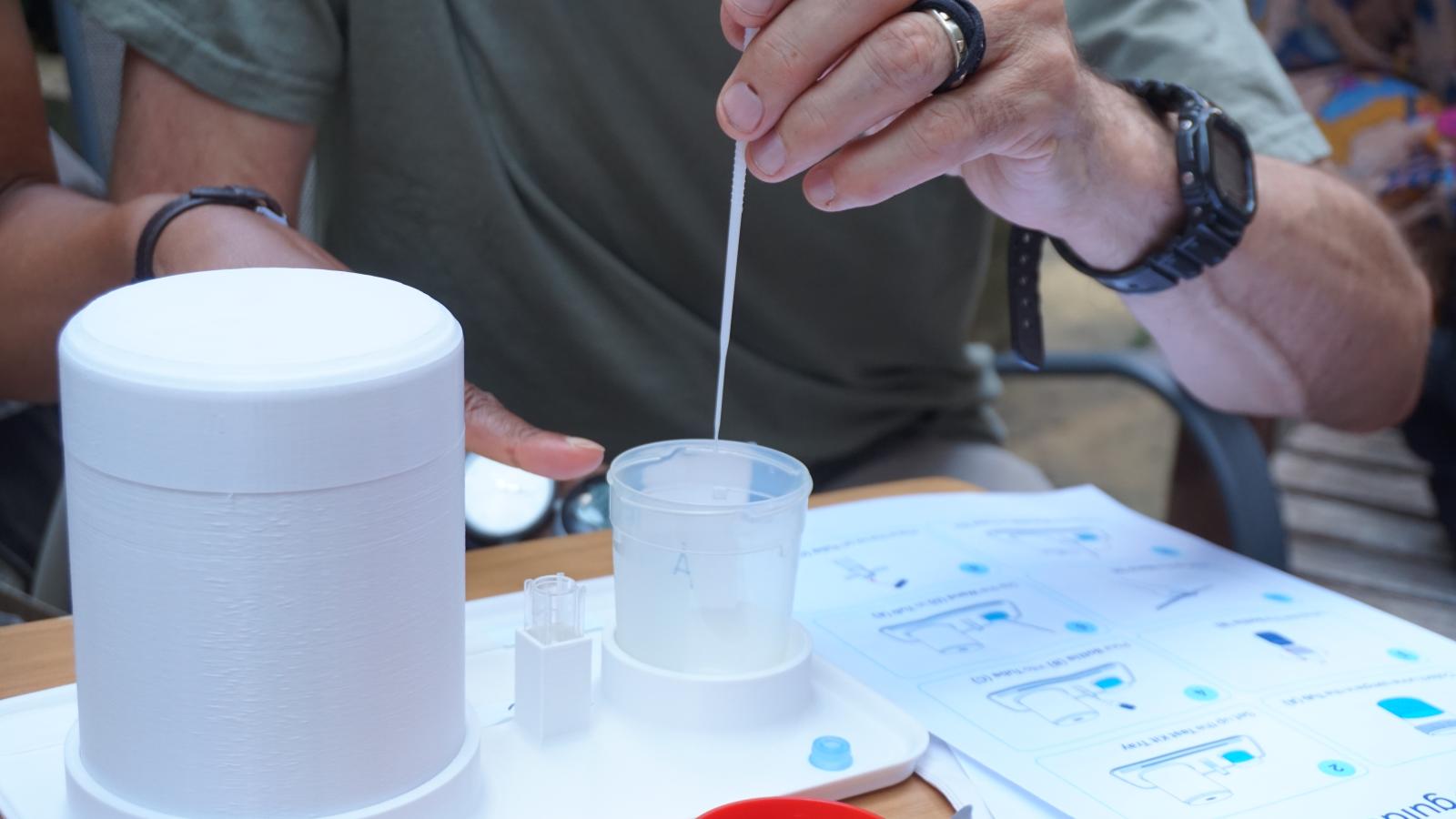Key details
Improving urinary tract infection diagnostics, particularly for people living with dementia
Urinary tract infections (UTIs) are a significant problem among the elderly and especially those living with dementia. People living with dementia can struggle to recognise or communicate UTI symptoms, which can cause treatment delays that have serious negative consequences. Delayed detection and/or inappropriate management of UTIs among people with dementia can lead to acute episodes of increased confusion, agitation or delirium. Furthermore, delayed or untreated UTIs among elderly populations are associated with an increased risk of bloodstream infection, hospitalisation and mortality. Improved methods of UTI assessment are urgently required to keep people with dementia living healthier lives and remaining in their homes for longer.
The Freemont Lab aims to tackle the issue of UTIs by characterising the urine to identify early indicators of infection. By detecting these signs, the group aims to improve UTI diagnostics, particularly for people living with dementia, allowing for more effective and timely treatment within their homes. This approach not only seeks to improve health outcomes but also to provide a greater sense of comfort and convenience for those affected and their caregivers.
Latest news


Prof Paul S Freemont
Prof Paul Freemont is a Group Leader at the UK DRI Centre for Care Research & Technology. Find out more about his career and expertise on his profile page.

Research summary

A Point-of-Care UTI testing device in development by the Freemont Lab. Credit: Freemont Lab
Addressing the impact of infection on people living with dementia, through the development of point-of-care detection systems using synthetic biology
UTIs can be especially serious occurrences in people living with dementia, due to their association with cognitive decline, delirium and hospitalisation. Certain behavioural manifestations of dementia can pre-dispose to UTIs (e.g. dehydration, reduced mobility, incontinence), and diagnosis of UTIs in people living with dementia is often impaired by the person’s inability to recognise or communicate symptoms suggestive of infection. As a result, they may suffer delays in treatment which can lead to more severe outcomes. However, despite increased UTI incidence being common among those with dementia, it is yet unclear the specific association between UTIs, cognitive decline and the neurodegenerative process. The overall hypothesis is that UTI incidence is associated with accelerated neurodegeneration and cognitive decline in dementia.
The Freemont Lab's specific objectives are:
- Determine the role of the urinary microbiome in the long-term colonisation and clinical presentation of UTIs
- Determine microbiological changes in the urinary microbiome that predict the onset of UTIs
- Identify microbial molecular genetic changes associated with UTI onset
- Apply new LAMP technologies to detect such changes within urine samples
- Understand the relationship between changes in the urine microbiome, occurrence of UTIs and behavioural changes including cognitive impairment and neurodegeneration in people living with dementia
The team's approach is to follow people living with dementia over time to track UTI and asymptomatic bacteriuria (ABU) events, assessing symptoms, behavior and urine microbiology by routine urine collection and analyses. They are creating a longitudinal map of participants' urine microbiome during periods of clinical stability and infection to test our hypothesis, that the urine microbiome composition - and changes thereof - can serve as indicators of UTI onset, risk, severity and treatment outcomes.
The team's QQ1 officially started in May 2019 and shortly after, they pivoted all their resources to establish a modular high throughput and UKAS accredited COVID testing platform. Their platform was adopted for NHS testing and asymptomatic community testing in NW London as well as testing all staff and students at Imperial College. They also established a next-generation sequencing pipeline to monitor the emergence of COVID variants and supported several important cohort studies led by Imperial clinicians. Due to their COVID work progress in QQ1 was delayed due to the pandemic emergency.
In parallel to the longitudinal study, the Freemont Lab have been developing a Point-of-Care UTI testing device. Their aim is to eliminate the typical symptom recognition pathway to minimise unnecessary hospitalisations by facilitating routine home tests. Their pathway will provide a result in 30 minutes compared to the current 48-hour wait time, as well as providing specific bacteria detection to refine antibiotic selection and reduce the risk of antimicrobial resistance (AMR).
A podcast from Dementia Researcher with the Freemont lab discussing the detection of UTIs early in dementia. Recorded in 2026.
Key publications
Vacancies
Lab members
- Dr Kirsten Jensen (Project Manager)
- Dr Alexander Webb (Postdoctoral Researcher)
- Rory Cave (Research Associate)
- Thomas Adam (Research Assistant)
- Martin Tran (Research Assistant)
- Xiaotong Guo (Research Postgraduate)
Collaborators




Lab funders
Thank you to all those who support the Freemont Lab!


